December’s ExChange workshop was a collaboration between Colin Turner from The Fostering Network, Dr Rhiannon Evans and Stephen Jennings from DECIPHer. The workshop looked at self-harm and suicide amongst care experienced young people. The focus was on the experiences of foster carers and residential workers and the support needed for management and prevention.
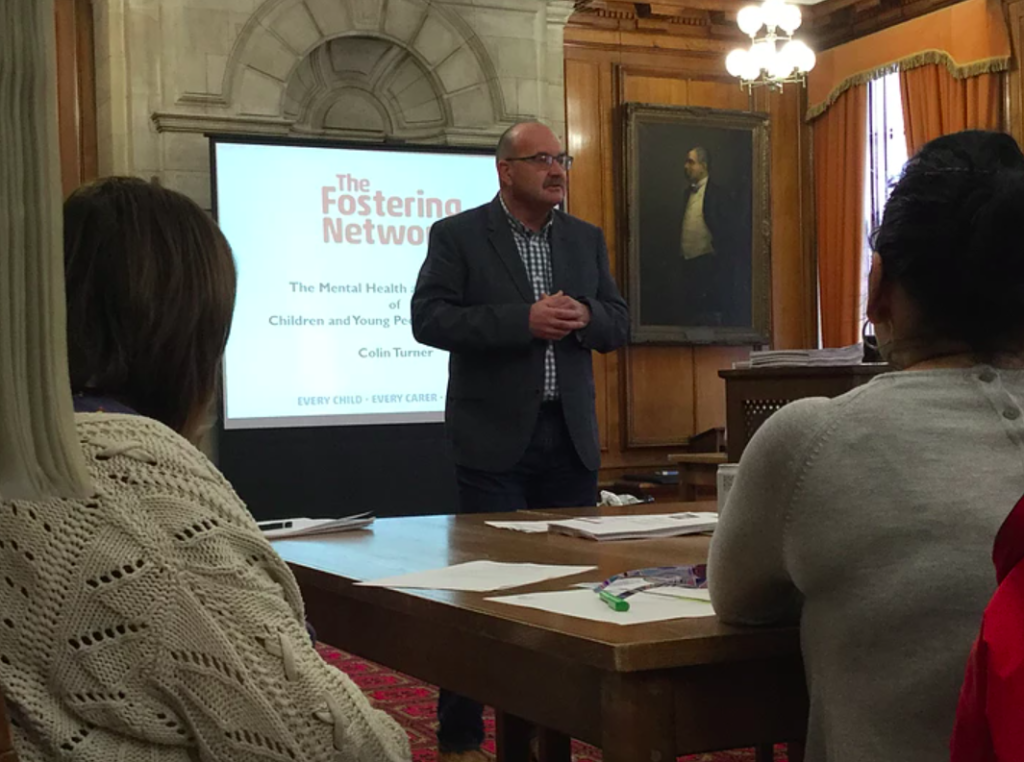
The session began with an introduction by Colin Turner, the director in Wales at The Fostering Network. He discussed that The Fostering Network has supported the research and circulated reports they had published on “Emotional and mental health of looked after children in wales”:
“1 in 10 children have a diagnosable mental health disorder. For children looked after it’s 1 in 5. Young people leaving care are 5 times more likely to attempt suicide.”
Colin talked about his role as a foster carer. Having trained as a social worker and spent much of his career in social care, Colin and his wife were inspired by other Foster Carers and adopters to become carers themselves, particularly for children with complex needs:
“I really believed I knew what it was like to be a foster carer,but honestly I didn’t have a clue. There were challengesand difficulties I didn’t see coming.”
Colin discussed his direct experience of fostering young people and children that struggled with self-harm. His talk was emotive and passionate and really highlighted the vital role of Foster Carers. Colin discussed the importance of training and support for Foster Carers. He learnt many management techniques to support his foster children by talking to more experienced Foster Carers, and of the importance and challenges of working with other agencies, such as CAMHS or schools to put the necessary things in place.
Colin highlighted the need to consider the language used with and around children and young people. Finally he talked about how important it was for Foster Carers to take care of themselves. What is the risk of thoughts of suicide, suicide attempt and suicide amongst care-experienced children and young people? This session was led by Dr Rhiannon Evans from DECIPHer sharing the findings and discussions from her own research.
Some facts from the research:
- In 2017 there were 72,670 “looked-after” children in England (3% increase 2016) and 5,954 in Wales (6% increase 2016).
- Children and young people who have experienced care may be at elevated risk of suicide-related outcomes: More than 3 times as likely to attempt suicide as non-care populations.
- Children and young people more likely to be exposed to known risk factors for suicide-related outcomes: More than 5 times as likely to have a diagnosable mental health condition.
- Maltreatment (such as physical abuse/sexual abuse/supervisory neglect) is a risk factor for suicide attempt.
- There remains limited evidence if pre-care or care exposure is the main risk for suicide-related outcomes.
How do foster carers and residential carers understand self-harm amongst the children and young people they care for, and how do these understandings inform their approach to management and prevention?
Rhiannon discussed how carers defined self-harm, their understandings of why children and young people in their care self-harmed and their strategies for management.
Defining self-harm: Serious vs superficial;
Authentic vs inauthentic; Invisible vs visible
The challenge is that superficial is sometimes seen as attention seeking, but any self-harm should be taken seriously. Key themes for understanding self-harm: Survival: Resistance, role conflict and chaosSignalling: Relationship rituals, relationship repairSecurity: Can you keep me safe? And emotional safety “Some young people may use self-harm after an incidentto show they need help. It may be a way of testingrelationships – testing whether a carer willshow nurture and keep them safe”
Management Strategies:
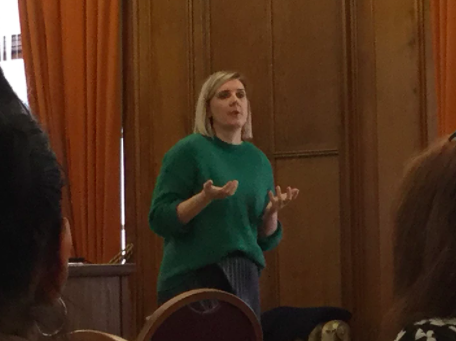
Carers focus on socially informed understanding of self-harm, about relationships, rather than the bio-medical approach of clinicians.
This includes developing safe and trusting relationships; emotionally open and available relationships; acceptance of their place in the care system.
“We need to pay more attention to how different groups understand the causes of self-harm and how it informs practice”
Workshop Discussion
How do we currently prevent/manage self-harm and suicide among care-experienced children & young people? What are the challenges with current approaches?
“Information sharing”
“safety plan”
“Coming together to share concern – collective working together”
“Core of all growing up is relationships, carers play a huge part in this”
“We’re fighting fires not focusing on prevention”
Ways forward?
“Considering societal factors, understanding self-harm in terms of relationships.”
“Realistic risk assessments, not treating children differently.”
“Looking at new technology or apps that can be used to support young people. Communicate with them in a way they’re comfortable. Not always expecting children and young people to conform to adult processes.”
“Formality doesn’t always work, we hear more from young people in the car or when out for a walk, not in formal review meetings.”
“There is a huge gap in support for kinship carers.”
How do carers work with social care and health professionals to manage and prevent self-harm, and how can current inter-professional working be improved?
The final session was run by Stephen Jennings, discussing his research findings. Stephen discussed the experiences of foster and residential carers working with other professionals to manage and prevent self-harm.
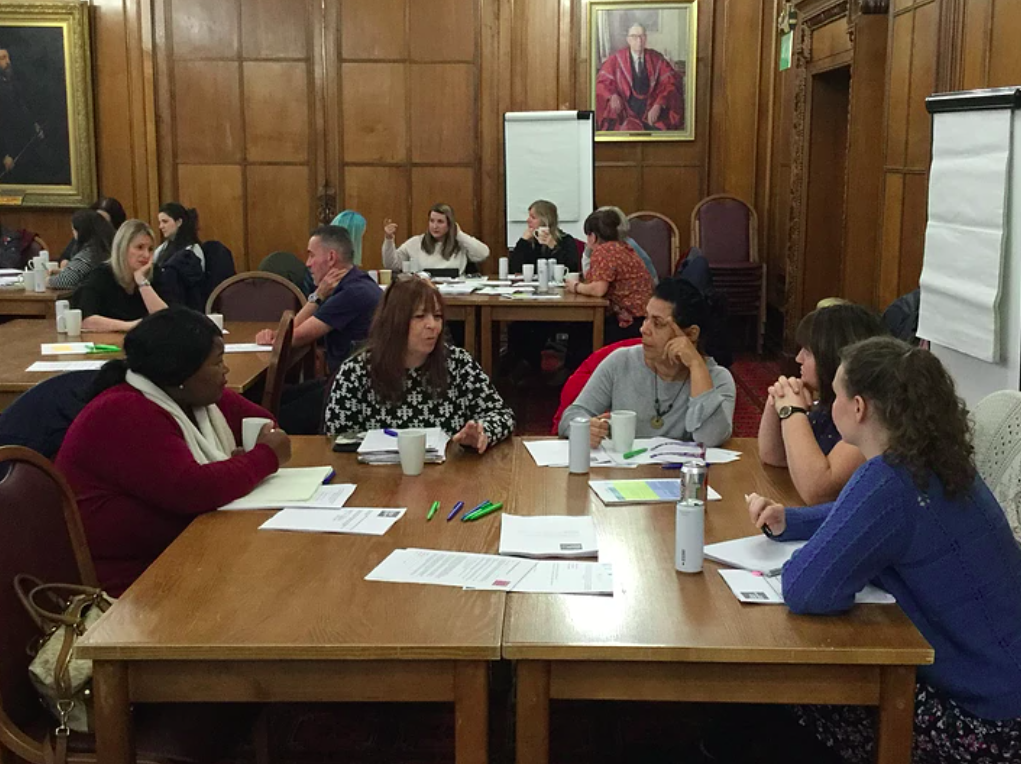
The main points introduced:
• The perceptions of expert knowledge: Carers had mixed feelings about expertise, where they either deferred to or contested the theoretical knowledge of clinicians. Carers provided alternative perspectives on expertise based around familiarity.
• Feeling marginalised within inter-professional teams: Carers felt their contributions were often not valued and recognised.
• Experience of stigma: Young people’s complex health needs left both them and carers stigmatised at hospital visits after self-harm.
• Positive accounts, where rapport has been established with other professionals involved: Where carers could demonstrate that they had expertise and a valuable contribution to make, this led to positive working in inter-professional teams, and this was often the result of longer-term relationships.
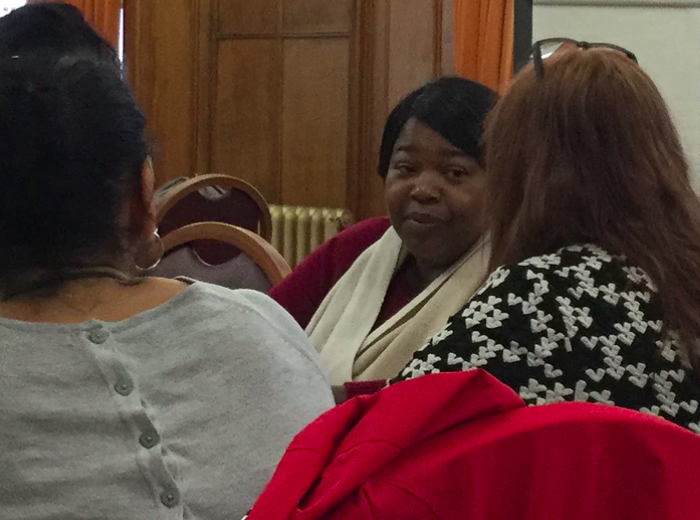
The session was wrapped up thinking about some final points. Carers make a distinct contribution in terms of preventing and managing self-harm, and they should be given a voice and an opportunity to contribute to decisions which affect those they care for. Foster and residential carers view themselves as professionals, and their perspectives should be considered as such by others working within these teams. Either formal qualifications or informal status raising for carers were seen as potential ways of improving self-harm management and prevention in inter-professional teams.
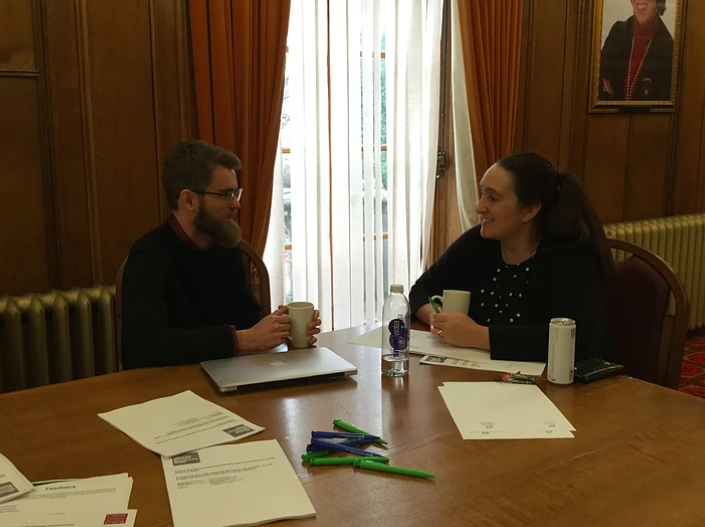
The workshop allowed for some interesting discussions on attendees’ current professional strategies and the research posed some interesting questions that need to be considered in practice. The inclusion of the lived experience of a foster carer bought to life all of the positives, challenges and realities of caring for children or young people with complex needs. It grounded the research findings in some first-hand stories that I was thoroughly captivated by. It was a real privilege to hear and learn from these experiences.
Presentations

